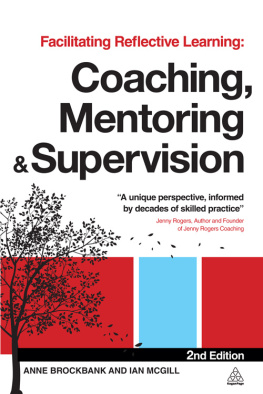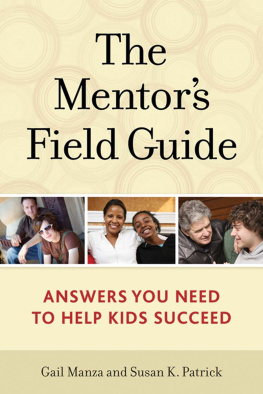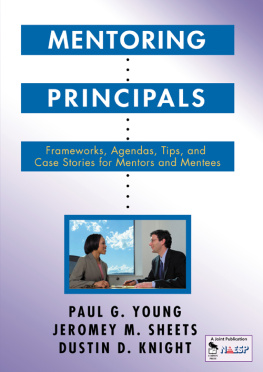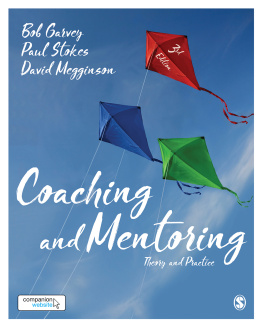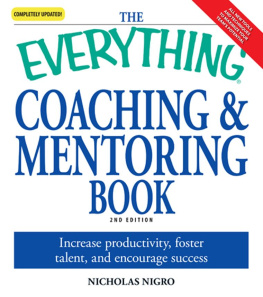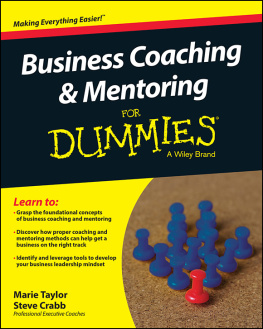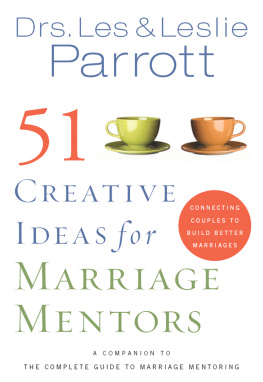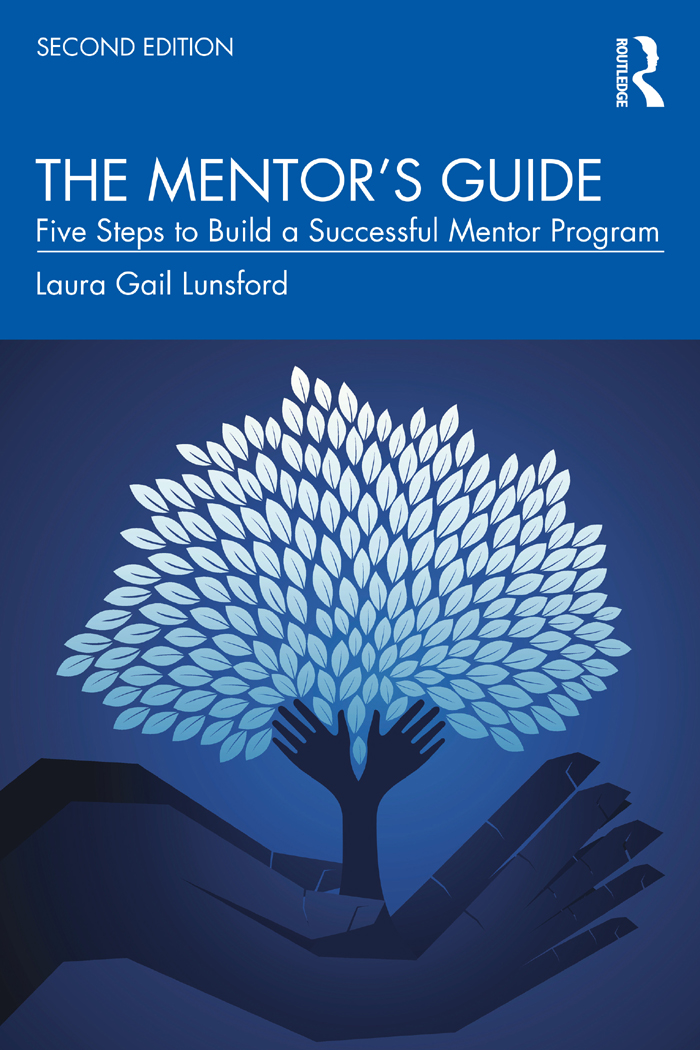The Mentors Guide
A definitive resource that pulls together evidence from psychology, education, and organizational studies, this fully updated second edition translates research into practice and serves as a practical handbook on how to set up, run, and evaluate any mentoring program.
Despite ever-growing interest, there are few helpful resources for program managers and mentoring coordinators. This book sheds needed light on mentoring behaviors, the stages of mentoring, elements of high-quality relationships, and how to recognize and avoid dysfunctional ones. Step-by-step guidance will enable readers to:
- Understand what mentoring is (and is not)
- Assess their mentoring program using a clear framework
- Work through steps to design or redesign an effective mentoring program
- Draw on real-world examples to assess and improve programs
- Benefit from all-new material for this second edition, including a chapter on e-mentoring and in-depth case studies, as well as updated information on culturally intelligent mentoring and more
If you manage or support a mentoring program, then this handbook is for you. Human resource professionals across industries will gain ideas on how to improve the efficiency and effectiveness of mentoring, while administrators in higher education will value the content on formal mentorship programs for faculty members, graduate students, and undergraduates.
Laura Gail Lunsford is an expert in mentoring and leadership. She has written numerous articles, chapters, and books on mentoring and leadership, including co-editing the Sage Handbook of Mentoring. She is Assistant Dean and Full Professor of Psychology at Campbell University.
The Mentors Guide
Five Steps to Build a Successful Mentoring Program
2nd Edition
Laura Gail Lunsford

Second edition published 2022
by Routledge
605 Third Avenue, New York, NY 10158
and by Routledge
2 Park Square, Milton Park, Abingdon, Oxon, OX14 4RN
Routledge is an imprint of the Taylor & Francis Group, an informa business
2022 Laura Gail Lunsford
The right of Laura Gail Lunsford to be identified as author of this work has been asserted in accordance with sections 77 and 78 of the Copyright, Designs and Patents Act 1988.
All rights reserved. No part of this book may be reprinted or reproduced or utilised in any form or by any electronic, mechanical, or other means, now known or hereafter invented, including photocopying and recording, or in any information storage or retrieval system, without permission in writing from the publishers.
Trademark notice: Product or corporate names may be trademarks or registered trademarks, and are used only for identification and explanation without intent to infringe.
First edition published by Routledge 2016
Library of Congress Cataloging-in-Publication Data
Names: Lunsford, Laura Gail, author.
Title: The mentors guide : five steps to build a successful mentoring program / Laura Gail Lunsford.
Other titles: Handbook for managing mentoring programs
Description: 2nd edition. | New York, NY : Routledge, 2022. | Earlier edition published in 2016 as: A handbook for managing mentoring programs: starting, supporting and sustaining effective mentoring. | Includes bibliographical references and index.
Identifiers: LCCN 2021028830 (print) | LCCN 2021028831 (ebook) | ISBN 9780367757557 (hardback) | ISBN 9780367757519 (paperback) | ISBN 9781003163862 (ebook)
Subjects: LCSH: Mentoring.
Classification: LCC BF637.M45 .L86 2022 (print) | LCC BF637.M45 (ebook) | DDC 158.3--dc23
LC record available at https://lccn.loc.gov/2021028830
LC ebook record available at https://lccn.loc.gov/2021028831
ISBN: 978-0-367-75755-7 (hbk)
ISBN: 978-0-367-75751-9 (pbk)
ISBN: 978-1-003-16386-2 (ebk)
DOI: 10.4324/9781003163862
Typeset in Sabon
by MPS Limited, Dehradun
Thanks mom, for the work ethic and in loving memory of dad.
Contents
- PART I
Understanding mentoring - PART II
Five steps to build a mentoring program - PART III
Enriching and strengthening the processes - PART IV
Vignettes and trends
Figures
Tables
Case Studies
About the author
Laura Gail Lunsford, PhD, is a mentoring and leadership development expert. A US Fulbright Scholar, she has published over 40 articles and chapters on mentorship dysfunction, optimizing mentoring relationships, mentor benefits, evaluating mentoring, and leadership. She co-edited the Sage Handbook of Mentoring and Mentoring Undergraduate Students and co-authored Faculty Development in Liberal Arts Colleges. Lunsford regularly consults with organizations on effective mentoring and coaching. Lunsford is Assistant Dean and Professor of Psychology at Campbell University, a beautiful liberal arts university in rural NC. In 2009, the International Mentoring Association (IMA) recognized her with the Dr. Hope Richardson Dissertation Award. She serves on the IMA Board of Directors, volunteers with the American Red Cross and is a Rotarian.
Preface
Great mentors make you feel good, motivated, and empowered. Terrific protgs give you a sense of satisfaction and well-being when you feel you have contributed to their success but what about great mentoring programs, or even great mentoring program managers? I have found few resources to help program managers when they are responsible for starting, supporting, or sustaining formal mentoring efforts.
This new edition answers questions I received from program managers from the first edition. The design of a mentoring program is simplified into five steps. Information is added about ethics, diversity, and inclusion. Several chapters were added to focus in-depth on popular types of mentoring programs and updated resources were added throughout the book.
The information in this volume will assist you to make evidence-based decisions on how best to operate your mentoring program. This book may advance efforts to professionalize roles with duties related to formal mentoring programs or with titles such as mentoring program manager, director, or coordinator. The broad, research-based coverage in the book also may be useful to those with an emerging scholarly interest in mentoring programs and to mentors and protgs.
A multidisciplinary approach frames the book. My scholarly interest in mentoring came from a conversation years ago with an expert in gifted education, Rena Subotnik, who is now Director of the Center for Psychology in Schools and Education, American Psychological Association. I have since worked with and studied mentoring programs in business, education, and community organizations. The book draws on research from business, education, psychology, and youth development. Positive psychology emphasizes flourishing and aligns well with the aim of sustaining effective mentoring programs.
May this handbook help you to facilitate successful mentoring relationships and contribute to creating a culture of mentoring in your organization.
Laura Gail Lunsford
Buies Creek and Wrightsville Beach, NC
Acknowledgments
Special thanks to:
the students who asked questions about mentoring: Do tell! and colleagues who think mentoring is swell,


